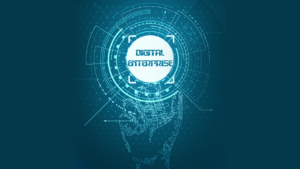The Digital Era, characterized by oceans of data generated at historical rates, is different from past eras. That’s why attempts to adjust to this new era using traditional methods are unlikely to succeed. Julie Sweet (@JulieSweet), Chief Executive Officer of Accenture, explains, “It is very hard to transform your culture and your workforce to be a relevant company in the digital world if all of your processes are stuck in the traditional world.”[1] To meet the challenges of the digital world, a new kind computing method was developed — cognitive computing. The now defunct Cognitive Computing Consortium explained, “Cognitive computing makes a new class of problems computable. It addresses complex situations that are characterized by ambiguity and uncertainty; in other words, it handles human kinds of problems.” The Consortium could just as easily stated cognitive computing systems handle business kinds of problems. The CIO Applications Europe staff adds, “Cognitive systems are highly effective in gathering, managing and analyzing, and cross-referencing information to identify changing causes, patterns, and observations, and to make reliable, evidence-based predictions.”[2]
Cognitive Computing Business Applications
The editorial team at Welp Magazine notes, “Cognitive computing offers invaluable benefits to all kinds of businesses by performing the functions traditionally allocated to humans at a much higher speed.”[3] Although the Welp staff seems to imply that cognitive computing systems are meant to replace humans, that’s not the case. They note, “Cognitive computing systems are not designed to replace human employees, they … provide much assistance in data analytics, customer care, and consulting, informing more accurate business decisions and minimizing business risks.” Former IBM CEO, Ginni Rometty (@GinniRometty), noted, “[When IBM coined the term cognitive computing,] the idea was to help you and I make better decisions amid cognitive overload. That’s what has always led us to cognitive. If I considered the initials AI, I would have preferred augmented intelligence. It’s the idea that each of us are going to need help on all important decisions.”[4] Better decision-making is critical to every business. As Bain analysts, Michael C. Mankins and Lori Sherer (@lorisherer), assert, “The best way to understand any company’s operations is to view them as a series of decisions.”[5] They add, “We know from extensive research that decisions matter — a lot. Companies that make better decisions, make them faster and execute them more effectively than rivals nearly always turn in better financial performance. Not surprisingly, companies that employ advanced analytics to improve decision making and execution have the results to show for it.” That’s why the Welp team notes, “The benefits of cognitive computing use in business are numerous.” Among those benefits they include:
- Quicker and more precise analysis of big data;
- In-depth data analytics informing accurate decision-making;
- Better customer service with human-like chatbots;
- Quick learning from data for the production of accurate recommendations.
The CIO Applications team concludes, “By embracing cognitive computing, businesses can benefit from various advantages that can help them boost business growth and produce high revenues.” Gary Fowler, CEO and Co-Founder of GSDVS.com and Yva.ai, reports there is data supporting these assertions. He writes, “According to a survey of early adopters conducted by IBM Cognitive, companies that have embraced the capabilities of cognitive computing have already noticed considerable return on their investment: 65% of respondents said the technology became crucial to the overall success of the business; 58% said it was pivotal in the company-wide digital transformation; and 58% said it would remain an important competitive advantage in the future.”[6]
Cognitive Computing Provides the Best rather than the Right Answers
Fowler observes, “Cognitive computing systems combine information from a wide variety of sources and evaluate the context in order to find their way to the best answers possible. In this process of data synthesis and evaluation, the systems rely on data mining, pattern recognition and natural language processing to simulate the thought process of a human brain.” It’s important to note that Fowler states cognitive systems provide the “best answers” rather than the “right answers.” The Cognitive Computing Consortium explained:
“The cognitive computing system offers a synthesis not just of information sources but of influences, contexts, and insights. To do this, systems often need to weigh conflicting evidence and suggest an answer that is ‘best’ rather than ‘right’. Cognitive computing systems make context computable. They identify and extract context features such as hour, location, task, history or profile to present an information set that is appropriate for an individual or for a dependent application engaged in a specific process at a specific time and place. They provide machine-aided serendipity by wading through massive collections of diverse information to find patterns and then apply those patterns to respond to the needs of the moment.”
Enterra’s cognitive computing system — the Enterra Cognitive Core™, a system that can Sense, Think, Act, and Learn® — like all cognitive computing systems, helps business leaders make decisions when confronted with ambiguous data. SAS analysts, Alison Bolen, Hui Li, and Wayne Thompson, observe, “Cognitive computing brings with it a promise of genuine, human-to-machine interaction. When machines become cognitive, they can understand requests, connect data points and draw conclusions. They can reason, observe and plan.”[7]
Concluding Thoughts
Fowler concludes, “As a next-generation solution that’s already a reality, cognitive computing stands out with a number of attributes that make it a viable investment for businesses undergoing a digital transformation and seeking more growth, engagement and productivity. … Cognitive systems are tools designed to help humans — such as employees or company leaders or even customers — make better-informed decisions.” The staff at CIO Review writes, “Today’s businesses must deal with complexity and vast data while making decisions faster than at any previous time in history. Fortunately, cognitive technologies are maturing to help.”[8] The staff continues, “Cognitive technologies like computer vision, machine learning, and natural language processing use artificial intelligence to perform tasks that only humans could perform. Cognitive technologies allow organizations to break prevailing trade-offs between speed, cost, and quality.” In other words, cognitive technologies allow an organization to transition from the traditional world to the digital world.
Footnotes
[1] Marguerite Ward, “The CEO of a $16 billion business explains why she banned corporate memos,” CNBC, 28 November 2016.
[2] Staff, “The Importance of Cognitive Computing,” CIO Applications Europe, 22 February 2021.
[3] Staff, “Smart Everything, Smart Everywhere: Top Use Cases for Cognitive Computing across Industries,” Welp Magazine, 20 December 2020.
[4] Megan Murphy, “Ginni Rometty on the End of Programming,” Bloomberg BusinessWeek, 20 September 2017.
[5] Michael C. Mankins and Lori Sherer, “Creating value through advanced analytics,” Bain Brief, 11 February 2015.
[6] Gary Fowler, “Understanding Cognitive Cloud Computing And Its Potential Impact On Business,” Forbes, 24 February 2021.
[7] Alison Bolen, Hui Li, and Wayne Thompson, “Becoming Cognitive: Understanding cognitive computing versus artificial intelligence, deep learning and machine learning,” Longitudes, 3 April 2017.
[8] Staff, “Why is Cognitive Technology a Must-Have for Businesses?” CIO Review, 4 August 2020.





